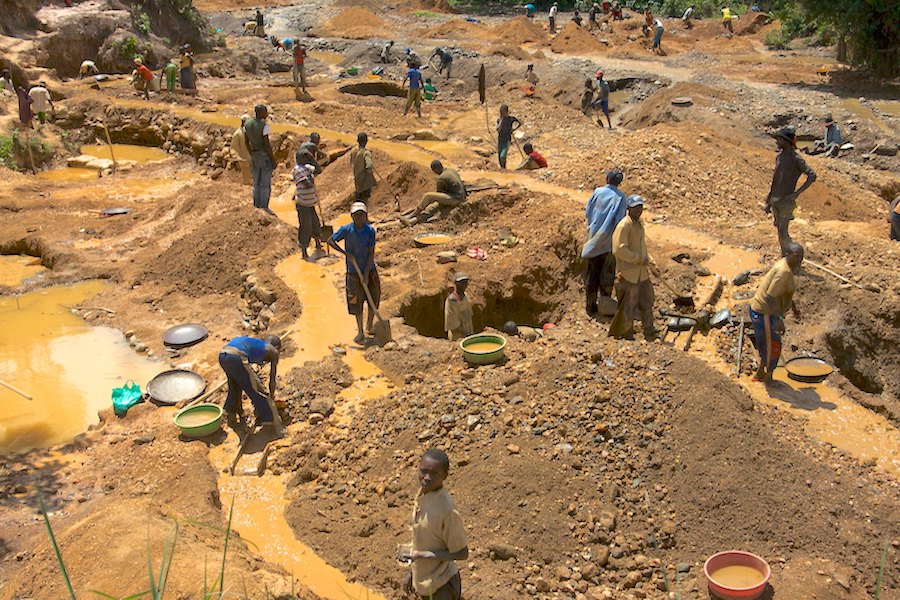The Democratic Republic of the Congo’s government has signed a deal with Trafigura to supply battery metal cobalt in return for help in improving mining conditions at informal mining sites.
As detailed in the pact, Trafigura has agreed to finance the creation of up to six controlled zones where informal miners would work to dig copper and cobalt with better safety protections.
The deal comes as electric car makers such as Tesla have pledged to help improve working conditions in the DRC, the world’s largest producer of cobalt which is used in lithium-ion batteries.
The central African country’s mineral-rich Katanga region is littered with informal mining sites, where cobalt is dug for by hand without safety protections, sometimes by children.
Tesla joined the Fair Cobalt Alliance – an industry-backed group that aims to improve conditions at informal mining sites in the DRC – this year. James Nicholson, head of corporate responsibility at Trafigura said there had been a “sea-change” in the attitude of carmakers and battery producers to the DRC, with many groups now willing to consider buying the metal from the country if labor problems could be resolved.
“For too long there has been criticism of the cobalt industry and this helps us address a fundamental weakness,” he said. However, some carmakers are still reluctant to source from the DRC’s informal mining sector.
German automobile manufacturer, Volkswagen, said last week that it did not accept cobalt from artisanal mines in the country.
In February, the government authorized state owned Entreprise Générale du Cobalt to buy up all informal, or artisanal, cobalt in the DRC, as part of efforts to formalize the sector and improve prices for local miners.
Most hand-mined cobalt is currently sold to Chinese traders at markets in and around the city of Kolwezi.
“For our country to benefit from the intrinsic value of cobalt, currently boosted by the development of carbon-free energies, it was essential that measures be taken to support the formalization of this industry,” Jean-Dominique Takis Kumbo, EGC’s managing director, said.
“In fact, by cleaning up this sector, which has been subject to recurring illegality and fraud for several years, and of which our artisanal miners are the first victims, society stands to benefit as a whole.” Trafigura said it would finance the creation of the zones as well as the installation of ore purchasing stations.
Metal from the sites would also be traced using QR codes to certify its origin for customers, Nicholson said. The company did not disclose how much money it would invest.
In 2018, the Geneva-based firm opened its first controlled site for informal mining, Mutoshi, with a local mining company, Chemaf.
Last year it raised $450m for the facility. However, the project has been closed since the pandemic forced its suspension in March.

